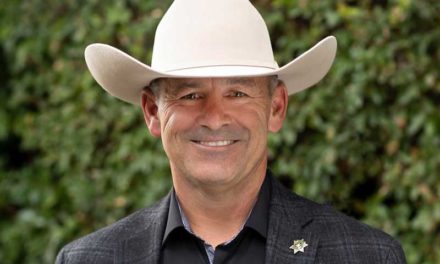When evaluating a political candidate’s qualifications for public office should it matter if he or she has a higher education degree and, if so, from which institution it was earned? Does a degree from the School of Hard Knocks count? How about a degree from Real Life University?
Neither Harnik nor her campaign consultant returned requests about where she graduated high school, or if she did.
The issue of a candidate’s education has surfaced in the race for the Riverside County Fourth District Supervisor’s race.
Supervisor V. Manuel “Manny” Perez, appointed to the seat in 2017, has proudly put his education in the forefront of this election. His background is included in nearly every news item released from his campaign. Perez, the son of immigrant farmworkers, was born and raised in the Coachella Valley. He attended local public schools and graduated from the University of California, Riverside. He taught at a local middle school and went on to earn a Master of Education degree in Administration, Planning, and Social Policy from Harvard University.
Some voters have taken note of his Harvard degree. To them, it matters.
The educational background of Perez’s challenger, Jan Harnik, a member of the Palm Desert City Council, has not been a significant part of her biography. Some say it is MIA.
Frankly, it is.
While all of her counterparts on the City Council list their respective degrees and areas of study on their profile pages on the city’s website, Harnik does not. She has a vast background of public service and leans on that to tell her story. As any proud mother, she talks of her and her husband’s four daughters, all of whom attended Palm Desert High School. She also adds they have graduated from U.C. Santa Barbara, Cal State Fullerton, U.C. Riverside and Cal Poly Pomona.
So, it begs the question. What is her educational background?
Neither Harnik nor her campaign consultant responded to several requests as to where she graduated high school, or if perhaps, she earned a high school equivalency diploma.
Harnik attended the following colleges:
- Pierce Junior College, Woodland Hills, Calif.
- Pomona State College, Pomona, NJ
- College of the Desert, Palm Desert, Calif.
“She did not finish college as she had to work to support herself and her two children as a single mom,” Jim Nygren, Harnik’s political consultant, said. “Her experiences are part of her motivation to be a leader in Girlfriend Factor, an organization dedicated to helping disadvantaged women, 25 years old or better, to re-enter college or university or the workforce.”
Abraham Lincoln, who some argue is the greatest president in American history, was one of the least educated men to hold the office. For all intents and purposes, his formal education stopped at the elementary level. Much of his knowledge was self-taught.
George W. Bush was a Yale graduate, yet many Americans viewed him as a dimwit.
Some voters are less concerned about degrees and alma maters than they are about if Candidate X can balance a budget, compromise, read a financial spreadsheet, comprehend a union contract, build consensus and more.
So, let’s begin at the beginning.
When evaluating a political candidate’s qualifications for public office should it matter if he or she has a higher education degree and, if so, from which institution it was earned?
Image Sources
- graduation cap and diploma: Pixabay







